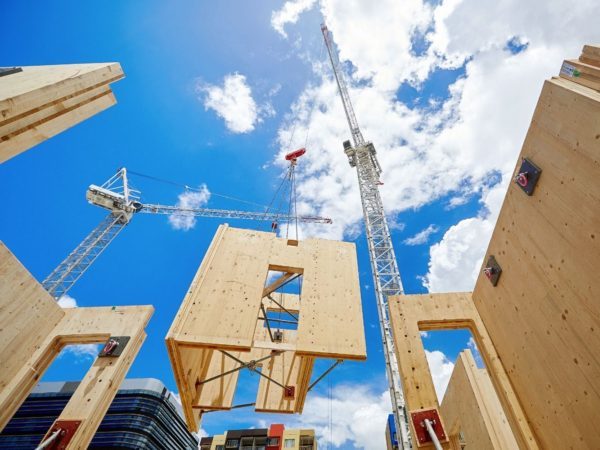B.C. Energy Step Code Capacity Study

Mass Timber Market Insights and Technology Ecosystem in British Columbia
November 5, 2021
Building a Culture of Construction Innovation
July 29, 2021The BC Energy Step Code accelerates the adoption of net zero energy practices in new large residential and commercial projects (classified under Part 3 of the BC Building Code) as well as single family houses and small commercial structures (Part 9). The next update is anticipated in 2022 which will require projects to be 20% more energy efficient than they are today.
As the Energy Step Code continues to ratchet down to Net Zero over the next decade, construction workers need to be familiar with a range of new and/or enhanced technical skills. To deliver these projects effectively and efficiently, they also need to start to embrace new enabling practices such as digital tools, team integration and collaboration, new trade relationships and responsibilities, and, possibly, new forms of project delivery.
To understand the state of readiness of key construction professions (developers, architects, engineers, energy modellers and advisors, builders, trades and building officials), Scius led the development of an industry capacity analysis for British Columbia. With assistance from The Delphi Group and Omicron and input from over fifty education providers, associations and NGOs, we looked at how eighteen key professions are doing in gearing up for the Energy Step Code and where knowledge gaps exist.
The 2021 BC Energy Step Code Industry Capacity Study was funded by BC Hydro and Fortis BC and governed by a task group set up by the BC Energy Step Code Council. Additional resources include:
A summary “heatmap” matrix for eighteen construction professions and a list of education resources for each profession (Excel)
A presentation about the study (PDF).

